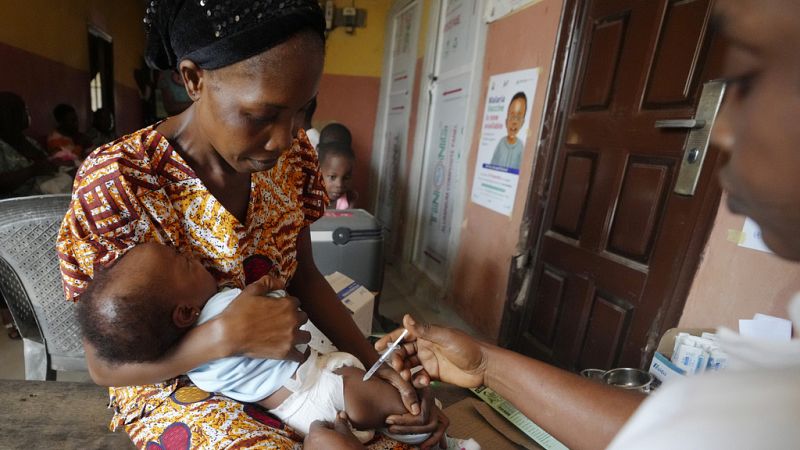Nigeria rolls out malaria vaccinations to young children

Nigeria has begun implementing a malaria vaccination programme in an effort to ease the world's highest burden of the mosquito-borne disease which last year killed some 200,000 people.
The vaccination schedule targets young children, with the first dose administered at five months.
One of the first areas where the programme is being rolled out is the southern state of Bayelsa, which has one of the country's highest rates of malaria.
Rebecca Godspower brought her six-month-old baby to a clinic for the vaccination after having twice treated him for malaria.
"Now that there’s a vaccine for malaria, at least I'm happy, I am glad that stress won’t be there again,” she said.
A view echoed by another mother, Esther Michael, who also visited the clinic.
“I'm happy to bring my child to the health centre to take a vaccine because we hear that malaria is killing other children."
Infants, children under five years, pregnant women and girls, travellers, and people with HIV or AIDS are at higher risk of severe infection.
Bayelsa State Commissioner for Health, Professor Seiyefa Brisibe, said malaria infection rates are high in the region.
“It accounts for about 30 per cent of deaths in children under five and it also accounts for a good number of reasons why adults, both mothers and fathers, stay out of a job.”
The commissioner said that despite the success recorded in Bayelsa so far, his administration still has to deal with misconceptions and misinformation regarding vaccines, including that it causes infertility.
"Religious leaders, some religious sects do not believe that people need to take vaccine, so that penetrates to society," he said.
Today

